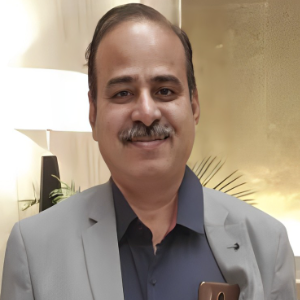Dermatoscopy is a medical tool designed to assist healthcare professionals in the accurate diagnosis and assessment of skin lesions. It is non-invasive and does not require the destruction of skin tissue. A dermatoscope is a small, handheld instrument equipped with a magnifying lens and a polarized light to enable healthcare providers to clearly examine and diagnose skin lesions in greater detail than with the naked eye. Dermatoscopy is primarily used for the early diagnosis of skin cancer, particularly malignant melanoma, which accounts for the vast majority of skin cancer-related deaths. Early detection is essential to the successful treatment of malignant melanoma, as it allows for more effective treatment options and increases the likelihood of a cure. Dermatoscopy also allows healthcare providers to manage and carefully monitor skin lesions over a period of time, in order to detect any changes in their size, shape or color, which could indicate a more serious underlying condition. Beyond skin cancer, dermatoscopy is also used to identify other types of skin disorders, including infections, inflammatory conditions and precancerous lesions such as actinic keratoses. By allowing healthcare providers to view skin lesions in greater detail and with greater accuracy, dermatoscopy can be a powerful tool to aid in determining the cause of a skin abnormality and deciding on the best course of treatment. Overall, dermatoscopy is an invaluable tool to assist healthcare providers in the accurate diagnosis and management of skin lesions. With early detection and treatment of malignant melanoma, it can help in prolonging life and reducing the likelihood of death from skin cancer. In addition, it can provide detailed information to help healthcare providers to better manage other skin disorders.

Ravi M Rathod
KMCRI, India
Dechelette Corinne
La Peau Autrement, France
Irina Sergeeva
Novosibirsk State University, Russian Federation
George Sulamanidze
Plastic Surgeon at Clinic of Plastic and Aesthetic Surgery and Cosmetology TOTALCharm, Georgia
Nino Tsamalaidze
Ltd Karabadini+, Georgia
Lina Petrossian
California University of Science and Medicine, United States
Surajbala Khuraijam
Manipur Health Services, India
Shrutimita Pokhariyal
Symbio, India
Yasser Mohammed Hassanain Elsayed
Egyptian Ministry of Health, Egypt



Title : Paraneoplastic Autoimmune Multiorgan Syndrome or PAMS: Paraneoplastic pemphigus revisited
Sergei A Grando, University of California Irvine, United States
Title : Modern non-invasive methods for in vivo assessment of skin
Georgios N Stamatas, SGS, France
Title : Personalized and precision dermatology through the view of biodesign-inspired translational & data-driven applications: Revolutionary skin treatments for every concern in clinical dermatology integrating skin care experts and consumers
Sergey Suchkov, N.D. Zelinskii Institute for Organic Chemistry of the Russian Academy of Sciences, Russian Federation
Title : The next generation of threads: Lifting, volumization, and biostimulation in one powerful triple action
George Sulamanidze, Plastic Surgeon at Clinic of Plastic and Aesthetic Surgery and Cosmetology TOTALCharm, Georgia
Title : Lymphoproliferative diseases in the practice of a dermatologist
Irina Sergeeva, Novosibirsk State University, Russian Federation
Title : Art, skin, and dermatology: Interdisciplinary perspectives
Dechelette Corinne, La Peau Autrement, France
Title : Comparative efficacy of omalizumab and dupilumab in children with Chronic Spontaneous Urticaria (CSU): A retrospective cohort analysis
Molynna Nguyen, University of Toledo, United States
Title : "Mirror mirror on the skin” — A low-cost community strategy to reduce melanoma disparities in Washington, D.C.
Kayla Sampson, Georgetown University School of Medicine, United States
Title : Vitiligo: Not just an aesthetic disorder
Mateja Starbek Zorko, University Medical centre Ljubljana, Slovenia
Title : Personalized and Precision Medicine as a unique avenue to have the healthcare model renewed to secure the national biosafety: Advanced skincare solutions in individualized cosmetology, reconstructive plastic surgery and the modern beauty
Sergey Suchkov, N.D. Zelinskii Institute for Organic Chemistry of the Russian Academy of Sciences, Russian Federation